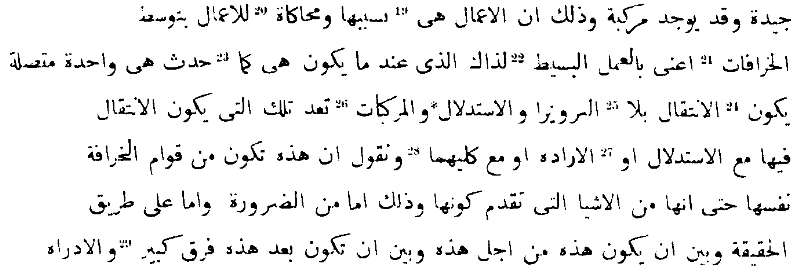Аристотель «Поэтика»: Сложные и простые сказания (1452a12)
Перевод М. Гаспарова
[а12] Сказания бывают или простые (ἁπλοῖ) или сплетенные (πεκλεγμένοι), ибо и действия, подражания которым они представляют, бывают именно таковы. [а14] Простым действием я называю такое действие непрерывное и единое (как сказано выше), при котором перемена <судьбы> происходит без перелома и узнавания; а в сплетенном перемена происходит с узнаванием, с переломом или и с тем и с другим. [а18] Все это должно возникать из самого склада сказания так, чтобы оно следовало из прежних событий или по необходимости или по вероятности, — ибо ведь большая разница, случится ли нечто вследствие
Перевод В. Аппельрота
Перевод Н. Новосадского
Translated by W.H. Fyfe
Translated by S.H. Butcher
A Complex action is one in which the change is accompanied by such Reversal, or by Recognition, or by both. These last should arise from the internal structure of the plot, so that what follows should be the necessary or probable result of the preceding action. It makes all the difference whether any given event is a case of propter hoc or post hoc.
Translated by I. Bywater
Traduction Ch. Emile Ruelle
II. Or j’appelle «action simple» celle qui, dans sa marche une et continue, telle qu’on l’a définie, se déroule sans péripétie ou sans reconnaissance; et «action complexe» celle qui se déroule avec reconnaissance ou avec péripétie, ou encore avec J’une et l’autre.
III. Il faut nécessairement que ces effets soient puisés dans la constitution même de la fable, de façon qu’ils viennent à se produire comme une conséquence vraisemblable ou nécessaire des événements antérieurs; car il y a une grande différence entre un fait produit à cause de tel autre fait, et un fait produit après tel autre (40).
